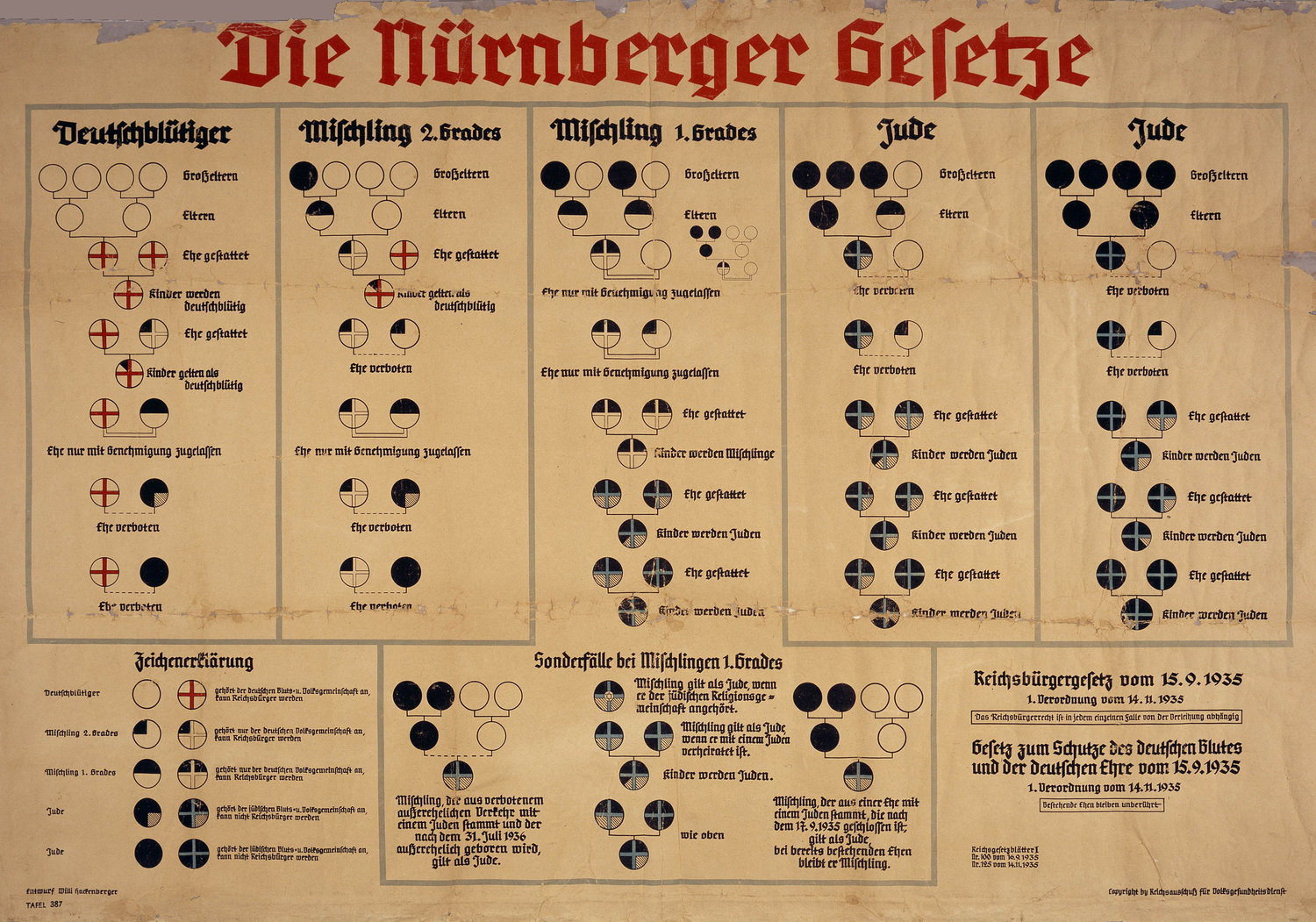AAJR Addresses Deteriorating Conditions in Germany
While Kisch was adjusting to life in the United States, the situation in Germany continued to deteriorate. In September 1935 the Nazi regime passed the Nuremberg Race Laws, which stripped German Jews of their citizenship and enforced a range of antisemitic and discriminatory practices against them. Meanwhile, as chaos mounted in Europe, it became more difficult for Jews to leave Germany to seek refuge elsewhere in Europe. The United States government curbed immigration quotas, and, after a record number of German Jews tried to enter Palestine in 1935, Britain froze immigration quotas there as well. German Jews were left with dwindling options for escape.
Aware of the dire situation in Germany, the Academy Executive Committee convened a meeting on November 8, 1938 with nine New York rabbis to discuss expanding the Refugee Research Fellowship Program. At the meeting, Louis Ginzberg, a professor at the Jewish Theological Seminary and a founding member of AAJR, argued that it was not the responsibility of AAJR to extend the program to Jewish scholars in non-Jewish fields. Despite Ginzberg’s position, most Academy leaders felt compelled expand the program as quickly as possible.
